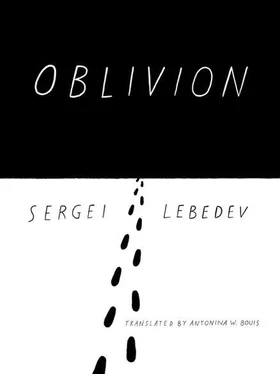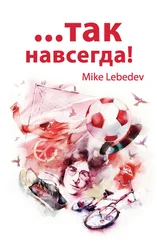Upon entering Grandfather II’s apartment, I remembered my childhood game, which was no game; I crossed the threshold of his possessions as heir, belated, awkward, having lived a different, nomadic, life, feeling burdened by property and not knowing why I needed a one-bedroom apartment in a luxurious Stalinist building, where the telephone was a relic, heavy black plastic hanging on the wall, as if the words that might come through the receiver should be heard standing at attention; I picked up the receiver like a shell on the beach—to listen to the hoarse breathing of a time past.
In the rooms where Grandfather II’s housekeeper—she lived the way petitioners sit, on the edge of the chair, as something second-rate compared to the objects—lived after his death, Grandfather II’s life manifested itself in the placement of the furniture seen anew with a fresh view, his habits, his domestic routes, his imperious character: the furniture was sturdy and heavy, on the shelves thick shot glasses on skinny stems shone dully, and I didn’t want to touch them with my fingers or lips—what had people toasted to with these, with what thoughts, with what in their hearts had they drunk from them? I found a vodka bottle, closed with a twist of paper, in the sideboard, but the paper crumbled into the lightest brown flakes and the vodka must have evaporated, leaving tasteless water.
Things looked at me—there was only one piece of furniture from the last half of the century, a nightstand made of particleboard; I pulled it away from the wall and on the back plywood panel there was a yellow label: “article, nightstand, 24 rubles,” and I sensed that this was my only ally here, and if not an ally, then at least not an enemy; “article, nightstand” was a word combination that had something familiar from the time in which I was born, a time of plywood and particleboard, particularly pathetic materials without pedigree, as if all the more solid and significant things had been used up mindlessly, leaving only sawdust and splinters from which people had learned to make furniture and partitions in their houses. But the cupboard and sideboard, the couches and shelves came from the 1930s; generously lacquered, they were more solid than me, they got you with their weight and bulk, their glass dimmed by innumerable reflections that left particles on the glass, while I was a balloon, something weightless and insignificant in this preserve of other times.
There wasn’t a single book in the house and there wasn’t any place to put one, not a shelf or a nook, just depositories for clothing and dishes, and beds wide and high—such beds are good for loving a woman, joining blood with blood, crumpling and bunching up the hot sweaty sheets, and for dying unfettered on those same sheets, hot and damp from fever. There were mounds of bed linens in the closets, enough for a large family, and this warehouse of sheets, blanket covers, and pillowcases revealed a time when clean linen meant more than just clean linen; there was the smell that a hot iron gives off when it’s filled with coal, the smell of plain soap, the ribbed washboard, running water and wooden mangle. A clean white tablecloth, one without a spot or pulled thread, starched, made a color pair for the main state color of the times—red. White was the mainstay of home; for some because they had come from dirt and remembered it all too well; for others because they sensed the impurity of the times and not seeing a way of staying clean themselves, sought external cleanliness. This drive for cleanliness remained throughout life: the closet had mops, buckets, rags, brooms—the housekeeper had scoured the house until her final hour.
Besides the blatant hostility of the furniture, I felt something else; it was like a message, a letter that lay in the “For Pickup” nook at the post office for ten years. In leaving me his house, Grandfather II considered it a message that only I would understand. Somewhere in here, either in plain sight or under the wallpaper, in the seams of his clothes, in the design of the parquet floor, there was a sign, a sign in invisible ink that had to be heated or wetted or held up to the light at a certain angle; the apartment was not empty, the message awaited its hour—a sleeping seed, a grain of an instant in which fate slept.
I started going through things in the sideboard and cupboards, random things tossed ashore by the tide of life; keys to unknown locks, no longer existing doors, forks and spoons, survivors of sets bought two-thirds of a century ago, lost in moves to various towns; I found the handle from a broken cup—that cup was valuable, memorable somehow; I found bent or broken frames for eyeglasses and pince-nez; coins, kopecks from forgotten years that were somehow selected from the rest and settled in the sideboard; buttons, rusted hooks, single cuff links—one with mother-of-pearl blackened like a damaged fingernail, the other homemade, carved ivory with Grandfather II’s initials; it was like the rubbish in a magpie’s nest, or the stuff that scatters on the asphalt after a crash, unremarkable, usually found in pockets and the bottom of bags and briefcases, but here taking on the significance of unused punctuation marks: everything is said, the sentence is complete, and the excess commas are strewn on the ground.
What is left when nothing is left is this clean nonrubbishy rubbish, arrayed like evidence on a policeman’s desk; what’s left despite our vain hopes is evidence of minor mishaps—broke my glasses, cracked the cup, lost my cuff link—as if life was intentionally collecting them, giving us back our unworthy agitation in the face of trivial difficulties; what is left is the biography of objects, which shows that essentially nothing happens to us, nothing really happens; the dry residue that remains are these mementoes, penknife notches on a school desk.
There could be no special testimony, no secret message among these scattered things on their own, away from the hierarchy of objects, the order of things, where there are pairs, dozens, settings, and sets. Sometimes such trifles can form a rebus, but here there was only one uniting trait: all these things were cracked, broken, bent, or spoiled—the sideboard drawer held three watches that had stopped in different decades—and whatever evidence they bore spoke of only one thing: no one slips out of life unbroken, and its effect is mechanical and automatic but inevitable and irreparable. Broken connections, disrupted unity, lost community; interrupted events, vague, having lost their own name; a hole in the pocket, a rent in a raincoat, and everything falls out, and you can catch only a few things in your fingers. It is not a mystery but the negation of a mystery; the apotheosis of ordinariness, the manifestation of mass consumption.
Well, this merely proved (things are the most impartial biographers) that Grandfather II, whatever his past, whatever he had hidden behind his blindness, had in many ways lived the most ordinary life; his things were as harmless as rattles, teething rings, and baby bottles, while I had expected in accordance with my childhood memories for them to at least partially take on his scale. But there was no real scale either—he was not great, but small, a blind old man who knew how to do only one thing—elicit fear, not fright which we often confuse with fear, especially as children, but fear—the oppressive living essence that forces the psyche into an unnatural state and forces a person to stifle himself; fear, the optical lenses of fear increased Grandfather II’s figure, gave it a demonic, creepy glow. The real horror was in the useless keys, the saucers from beat-up tea sets, in worn coins—in the anonymity of existence, in the impossibility of learning anything morally from these remains, which could have been caught in an archaeologist’s sieve, about a person who seemed to blend into the general background of an era, lost amid the trifles, who had taken on the quotidian as a scheme, or even more accurately, had always lived by it; a person about whom you sensed great evil but whom you could never call great or even having scale in that evil. Not minor, not great—average; his personality had lost the element that gives the potential for the grotesque, for playing with scale, for the chance to turn into a dwarf or a giant. He was like the monuments that filled the country, not big, not small, but which won by repetition, the power of the commonplace.
Читать дальше












